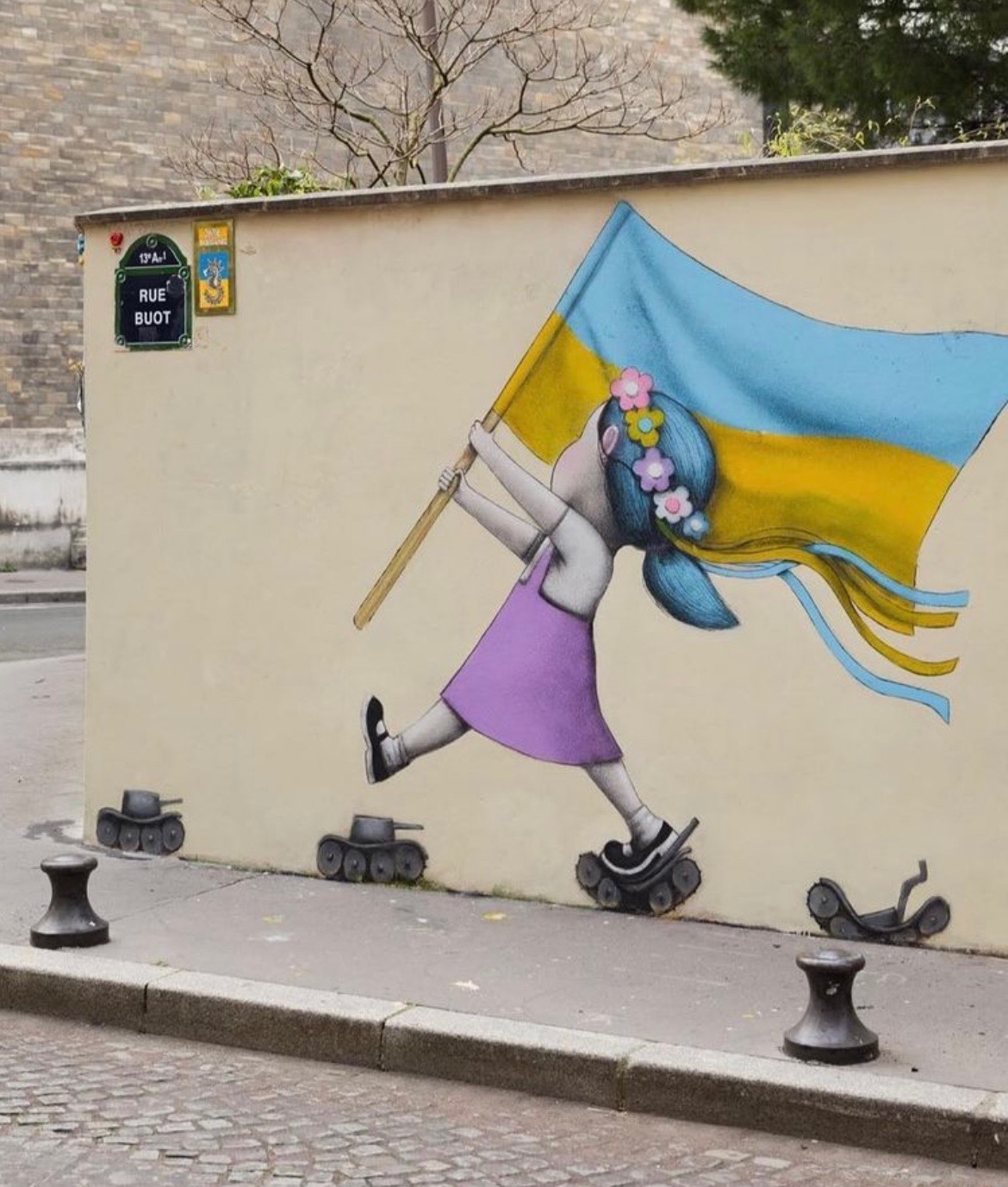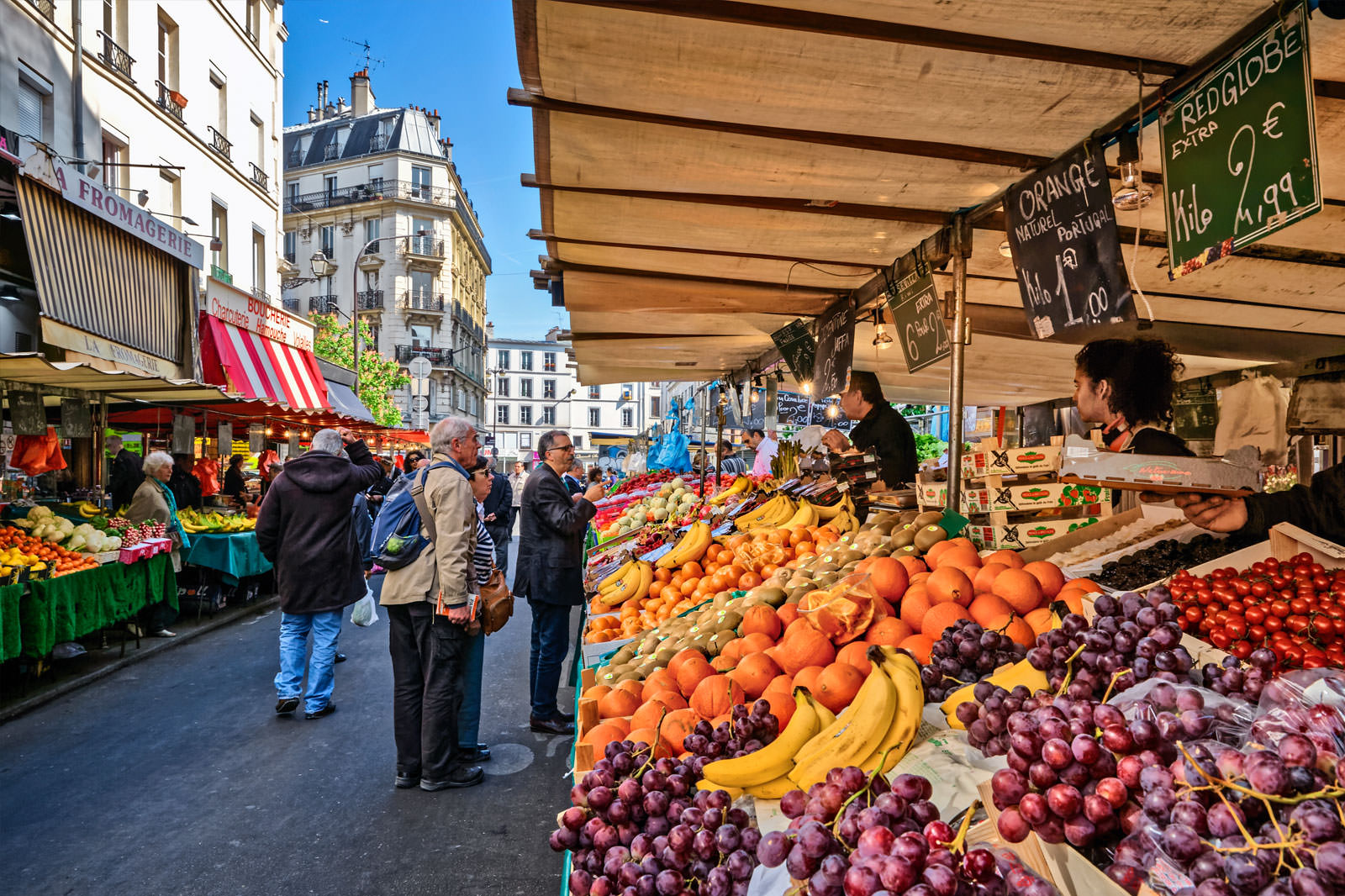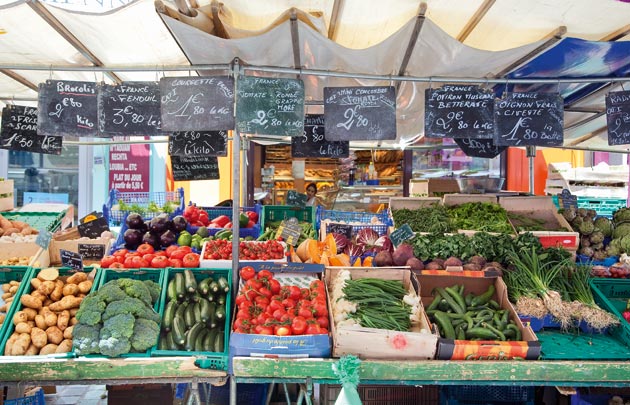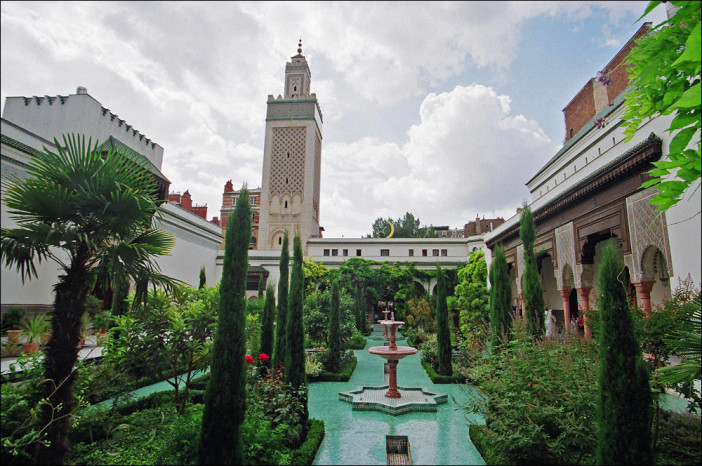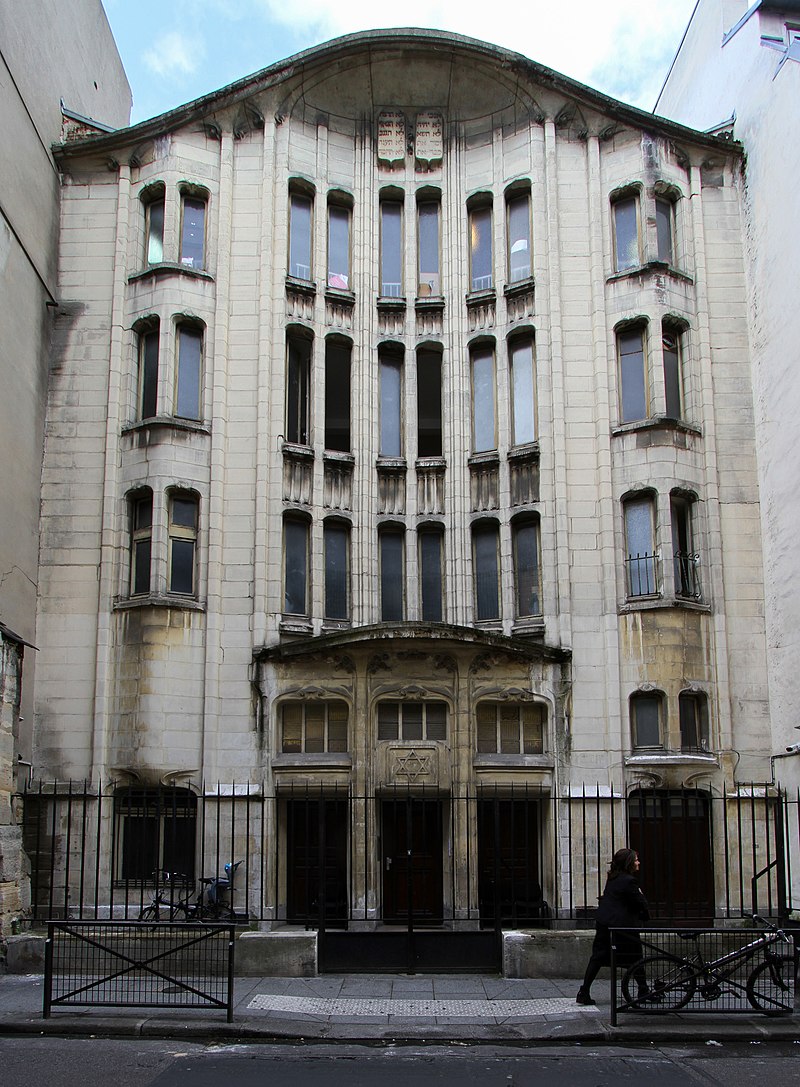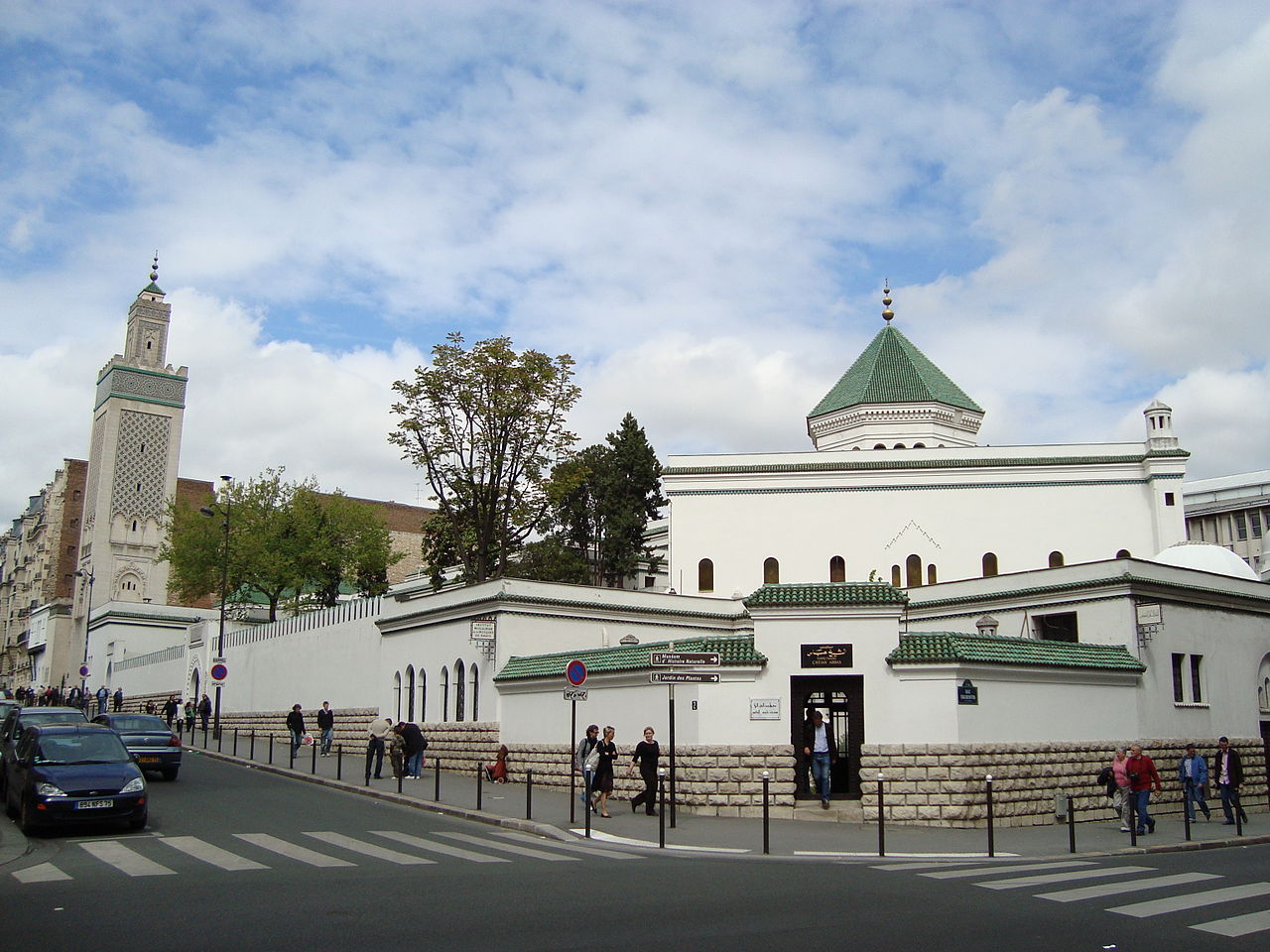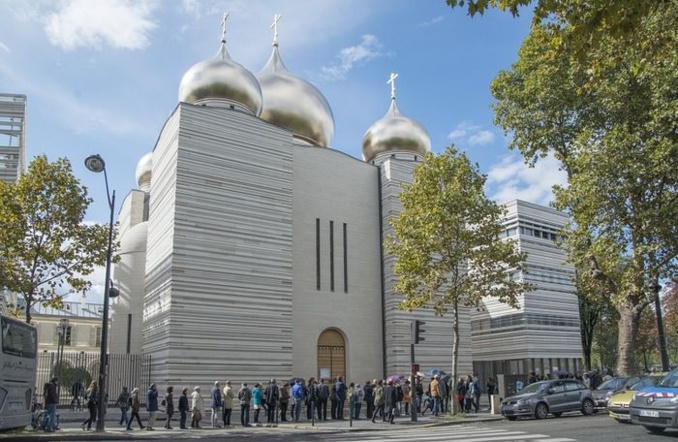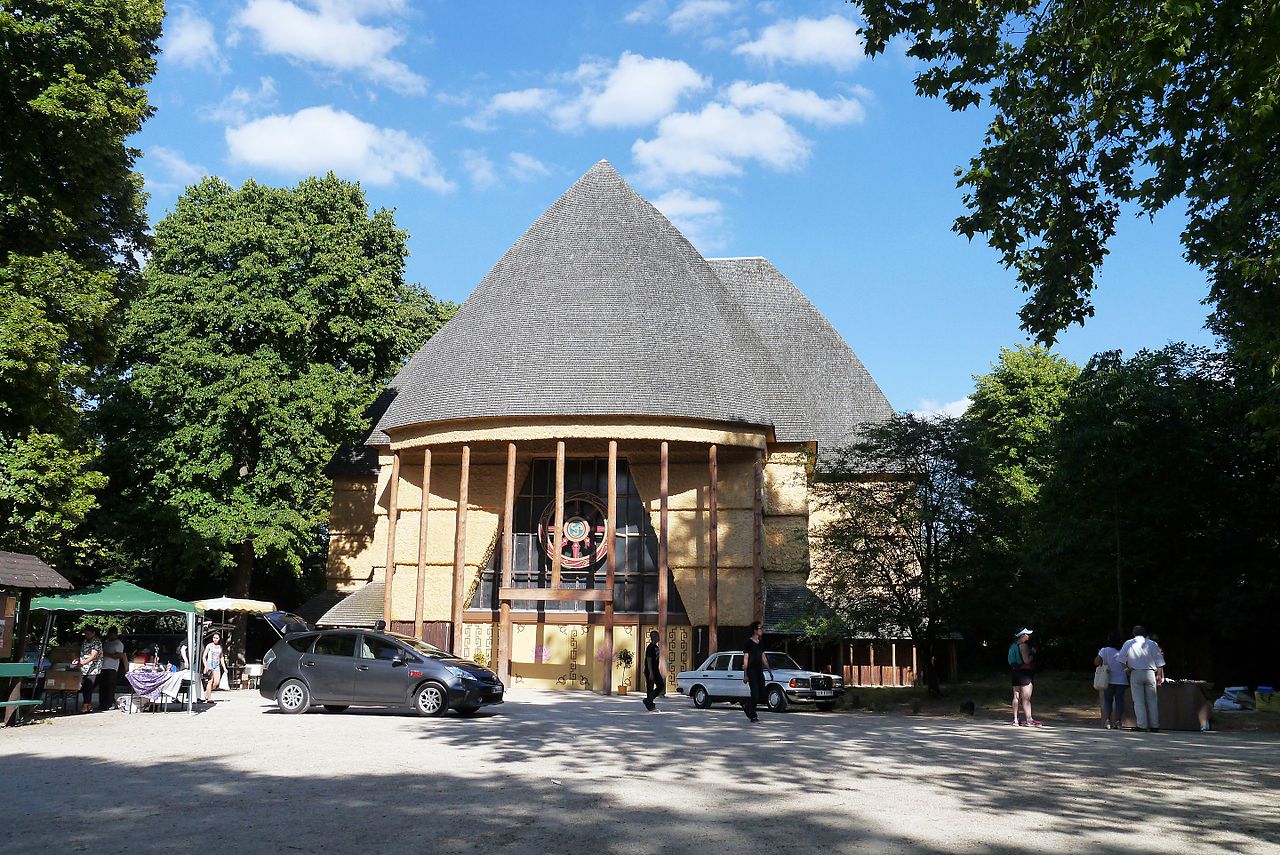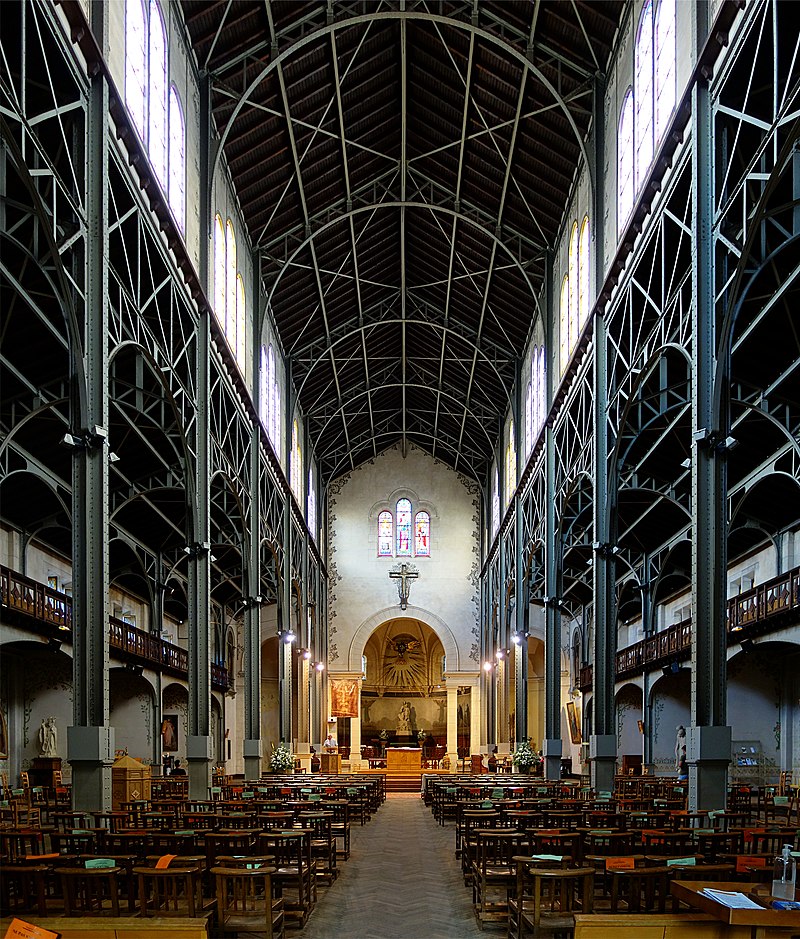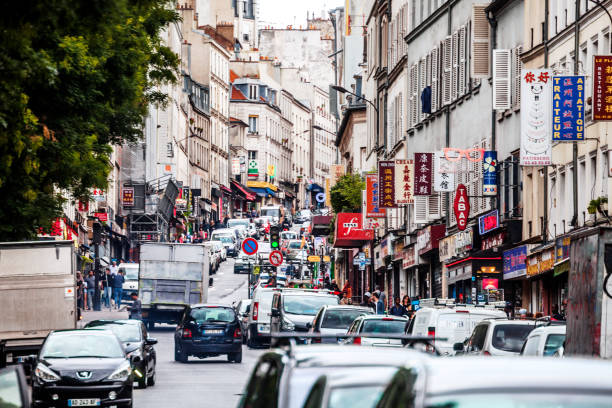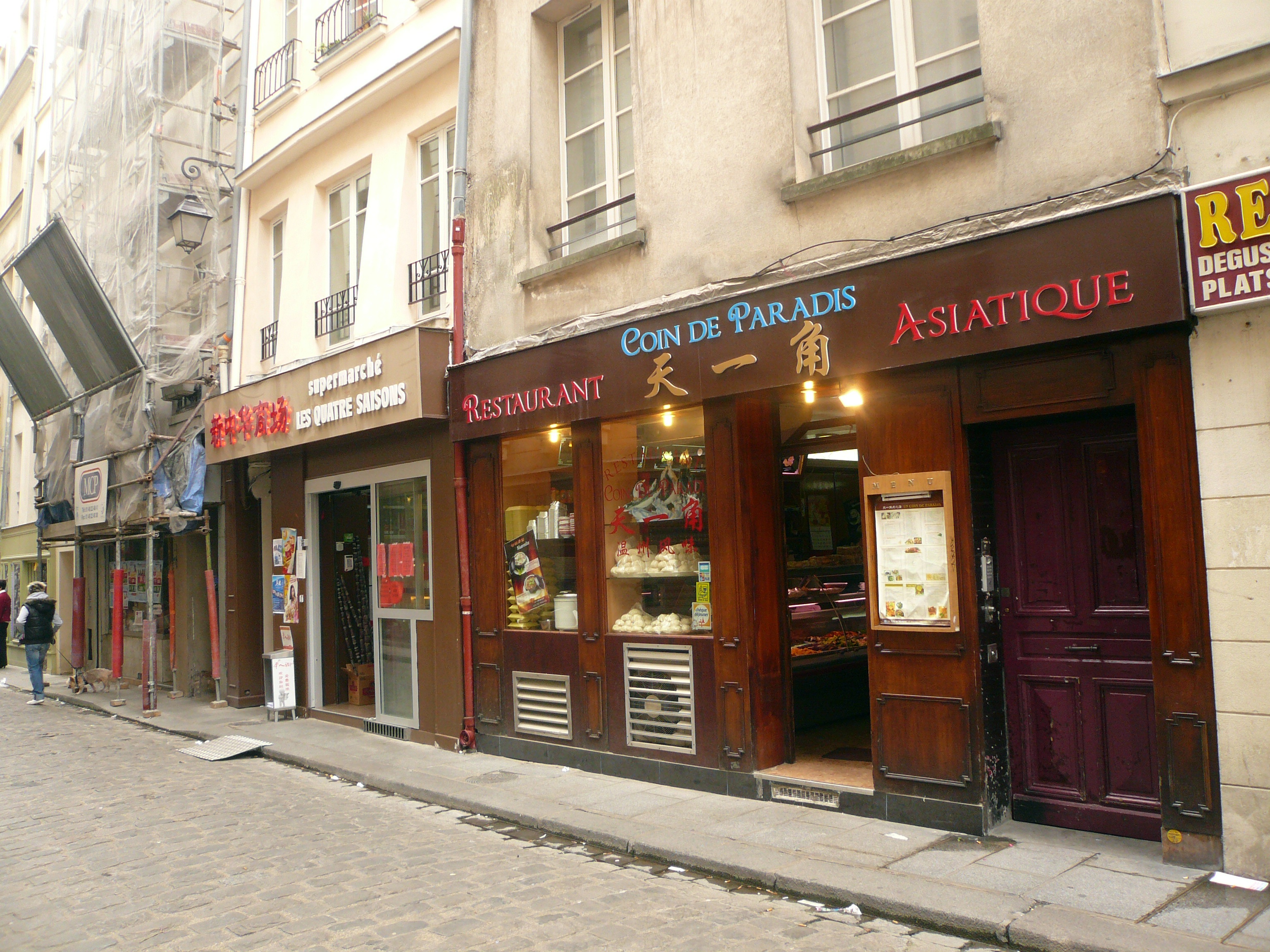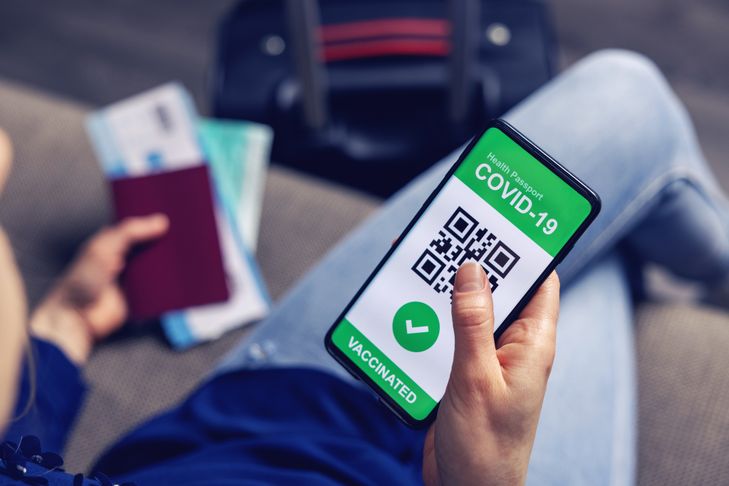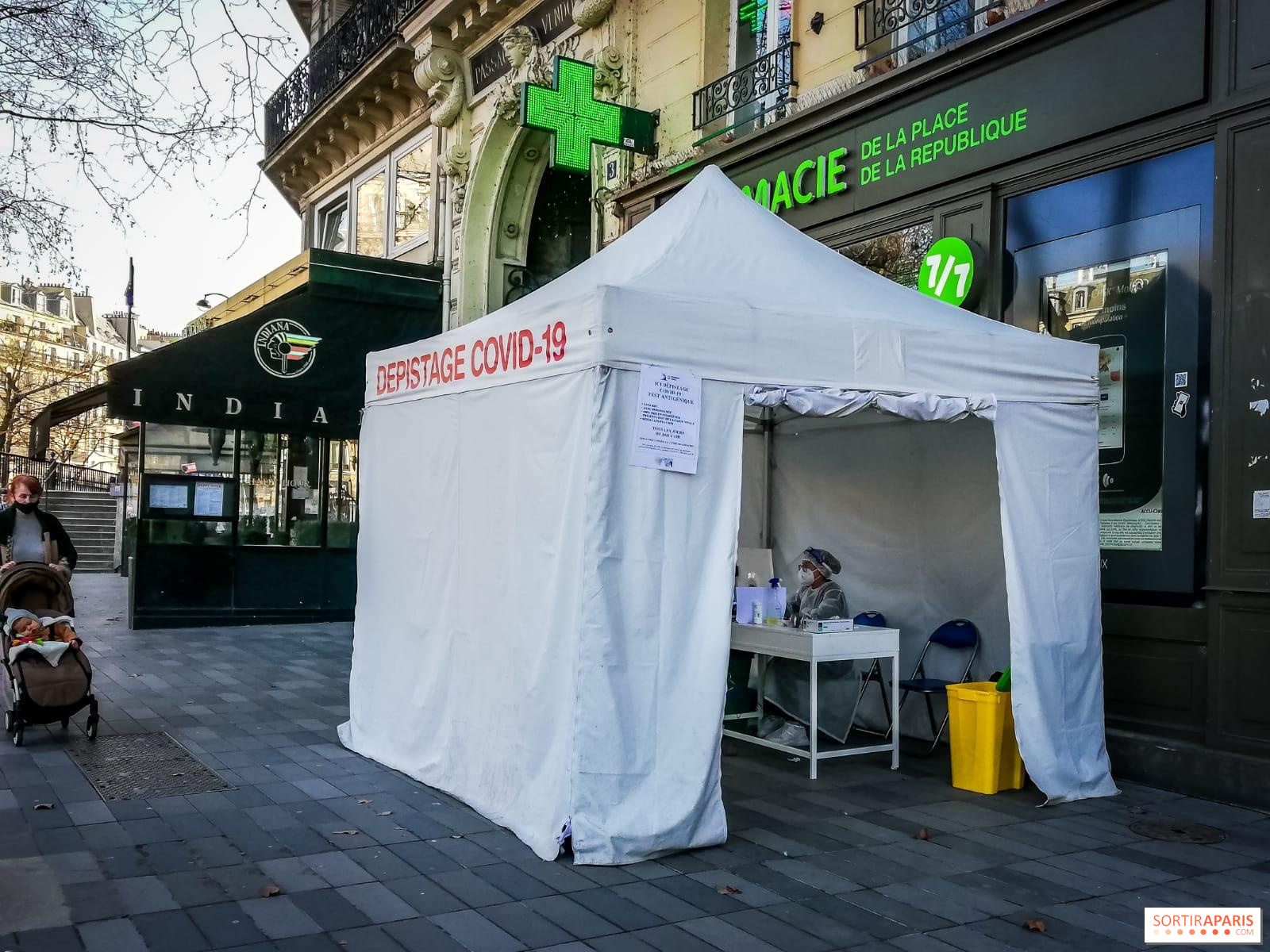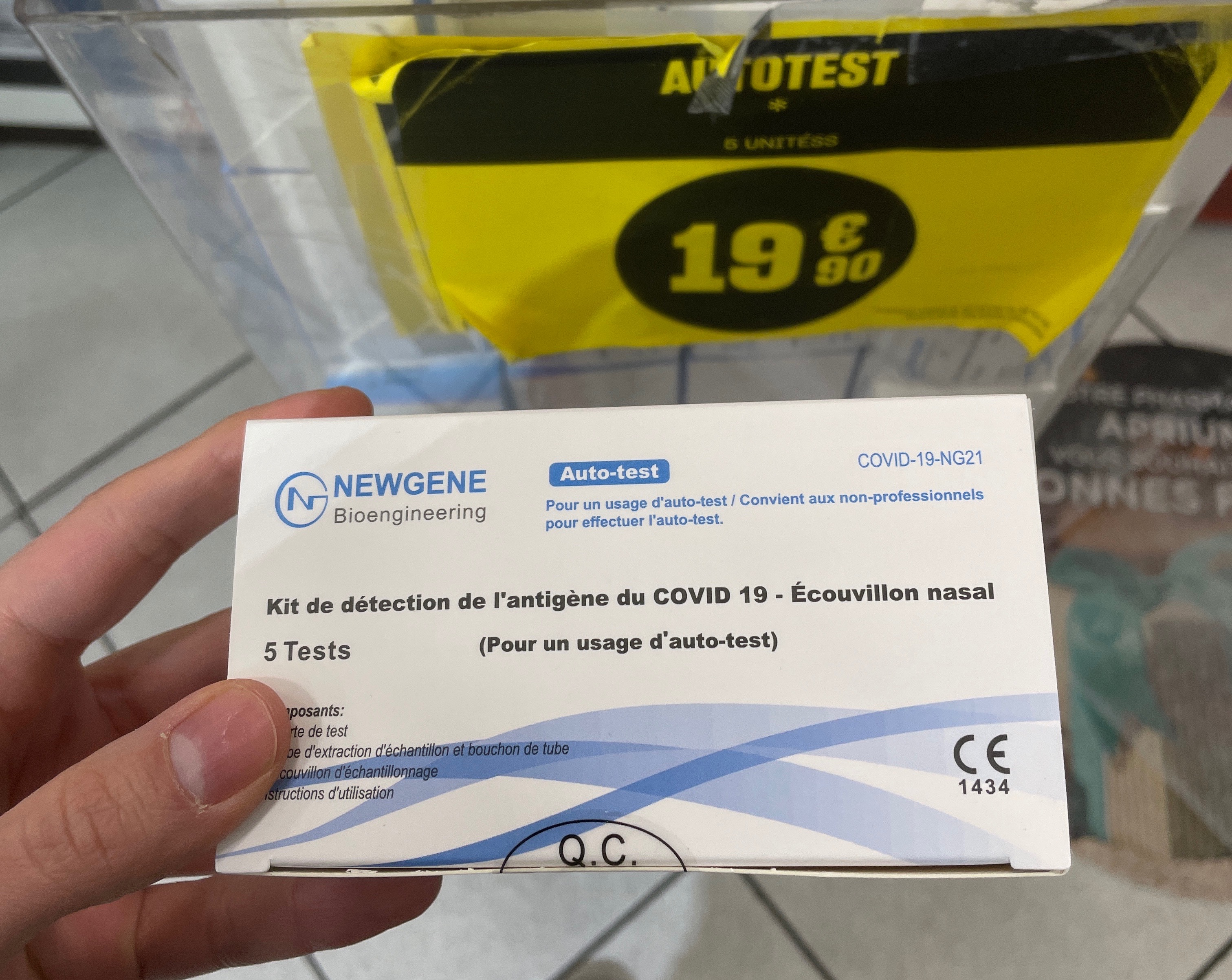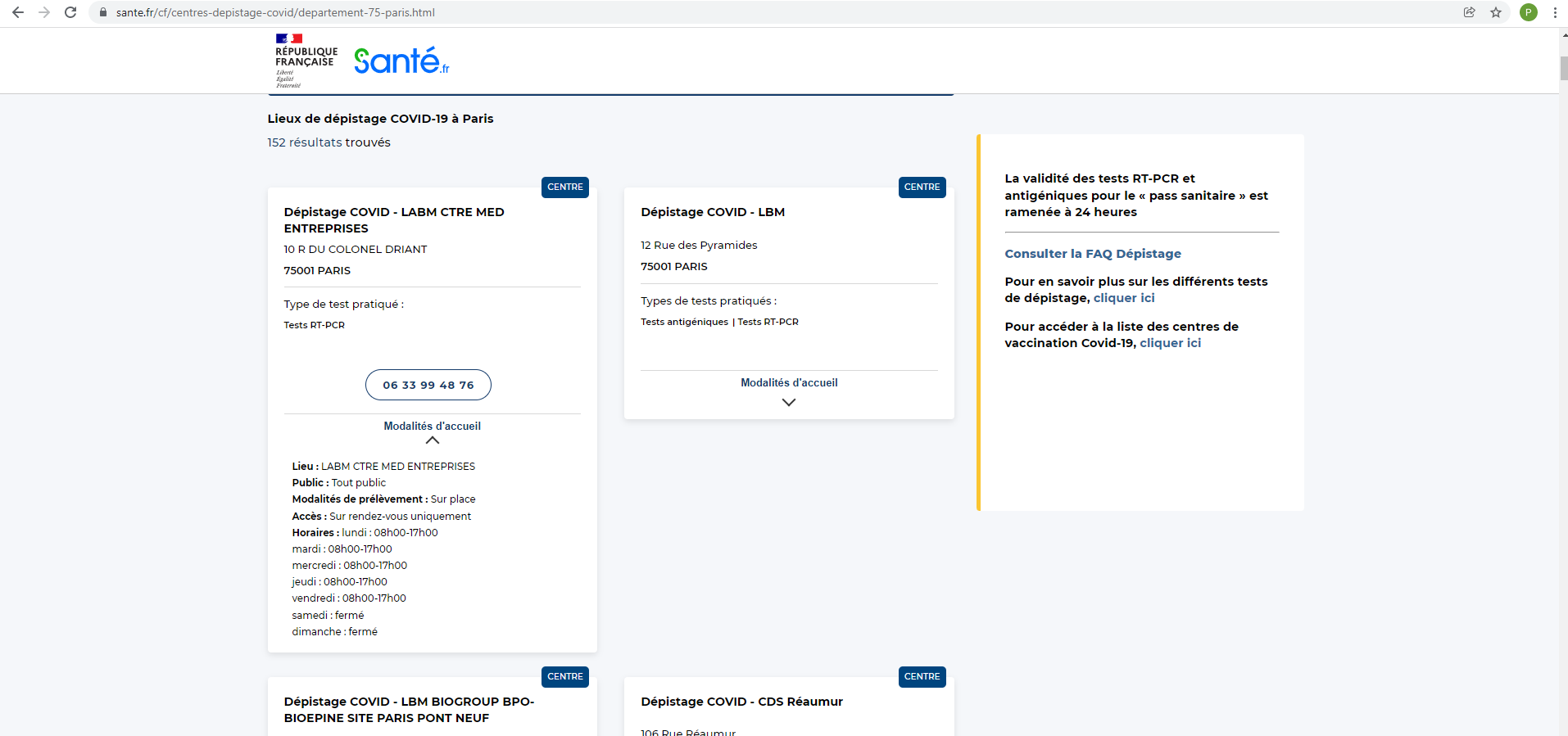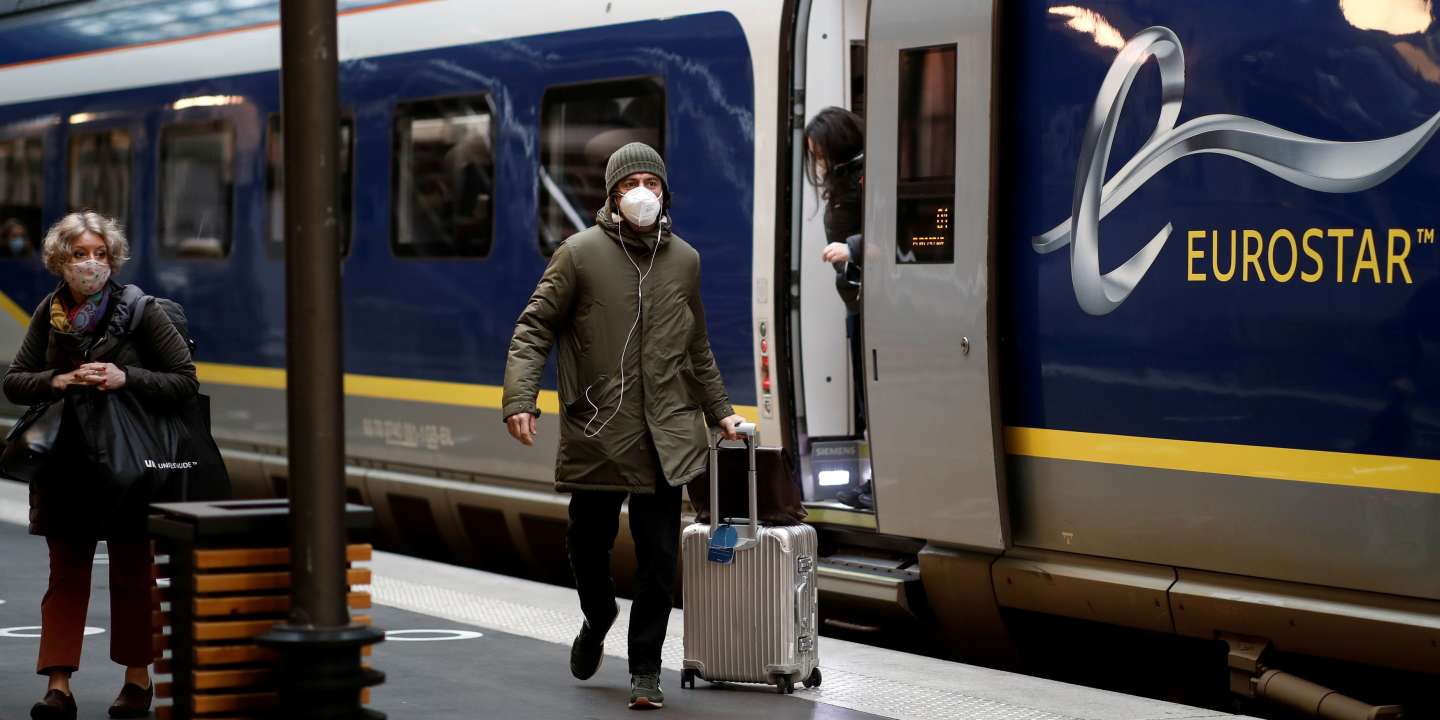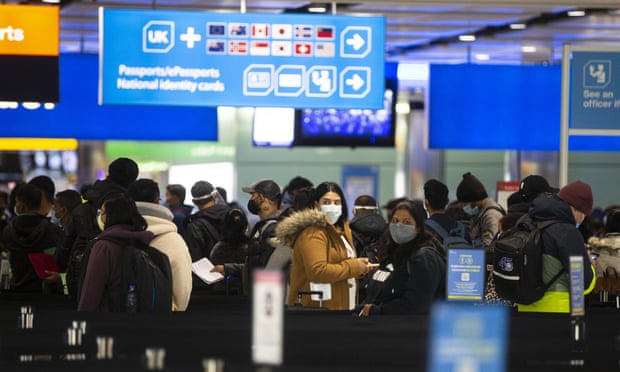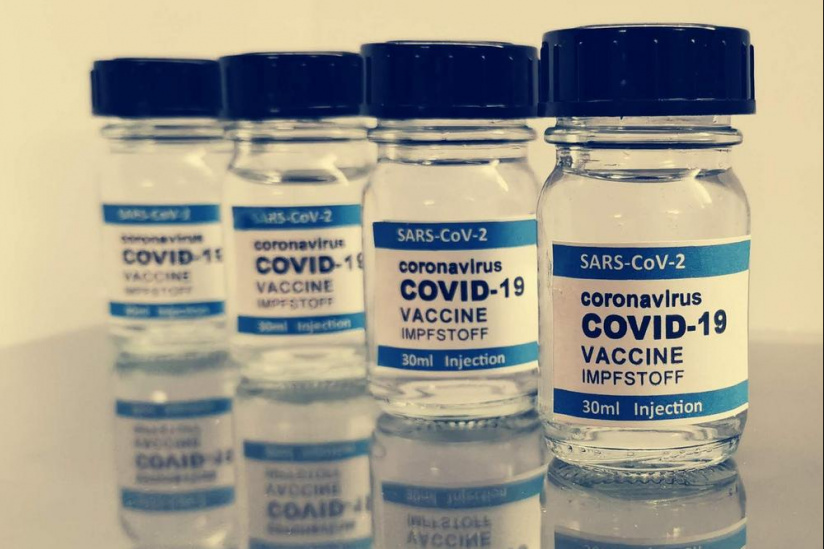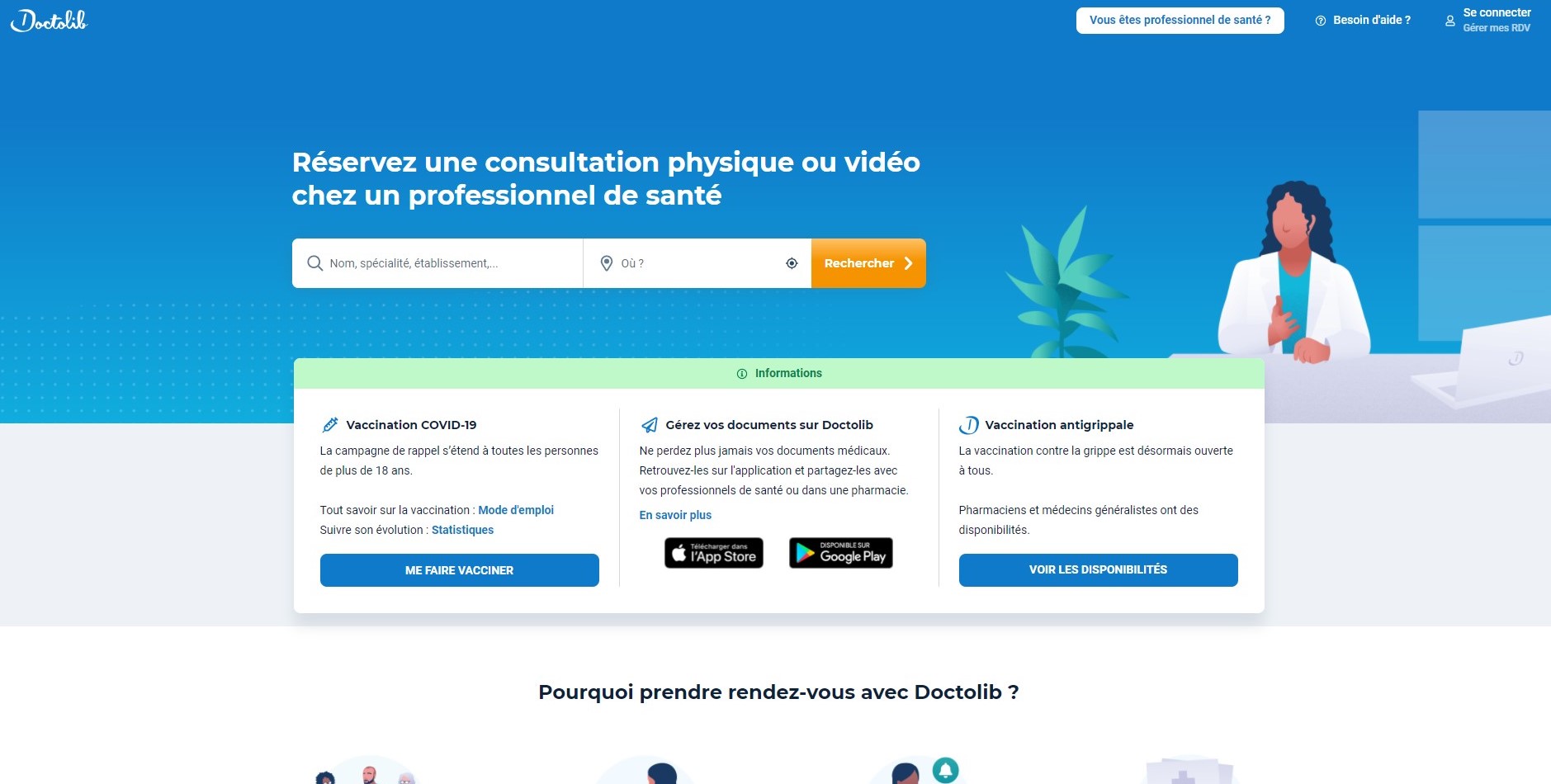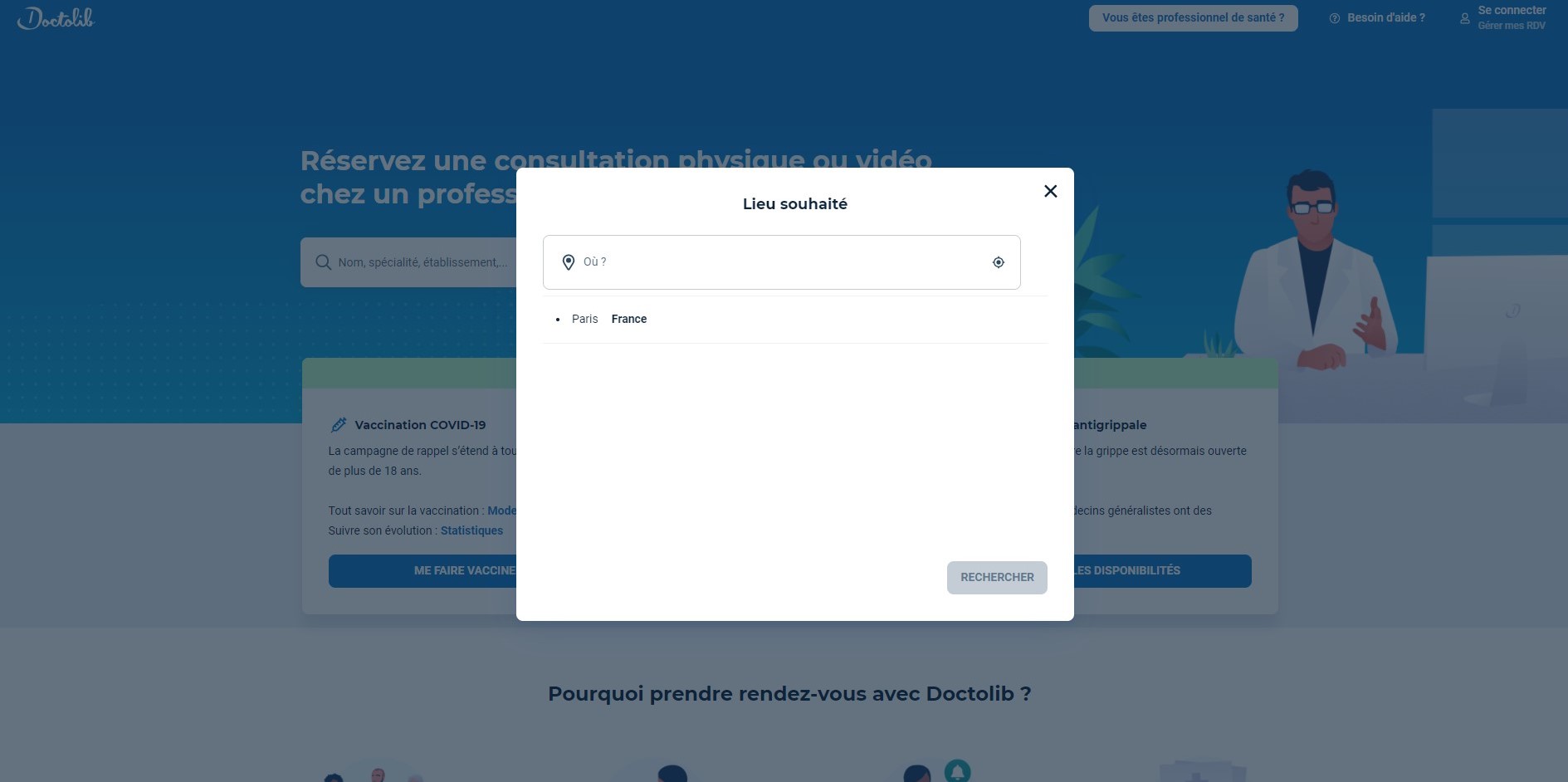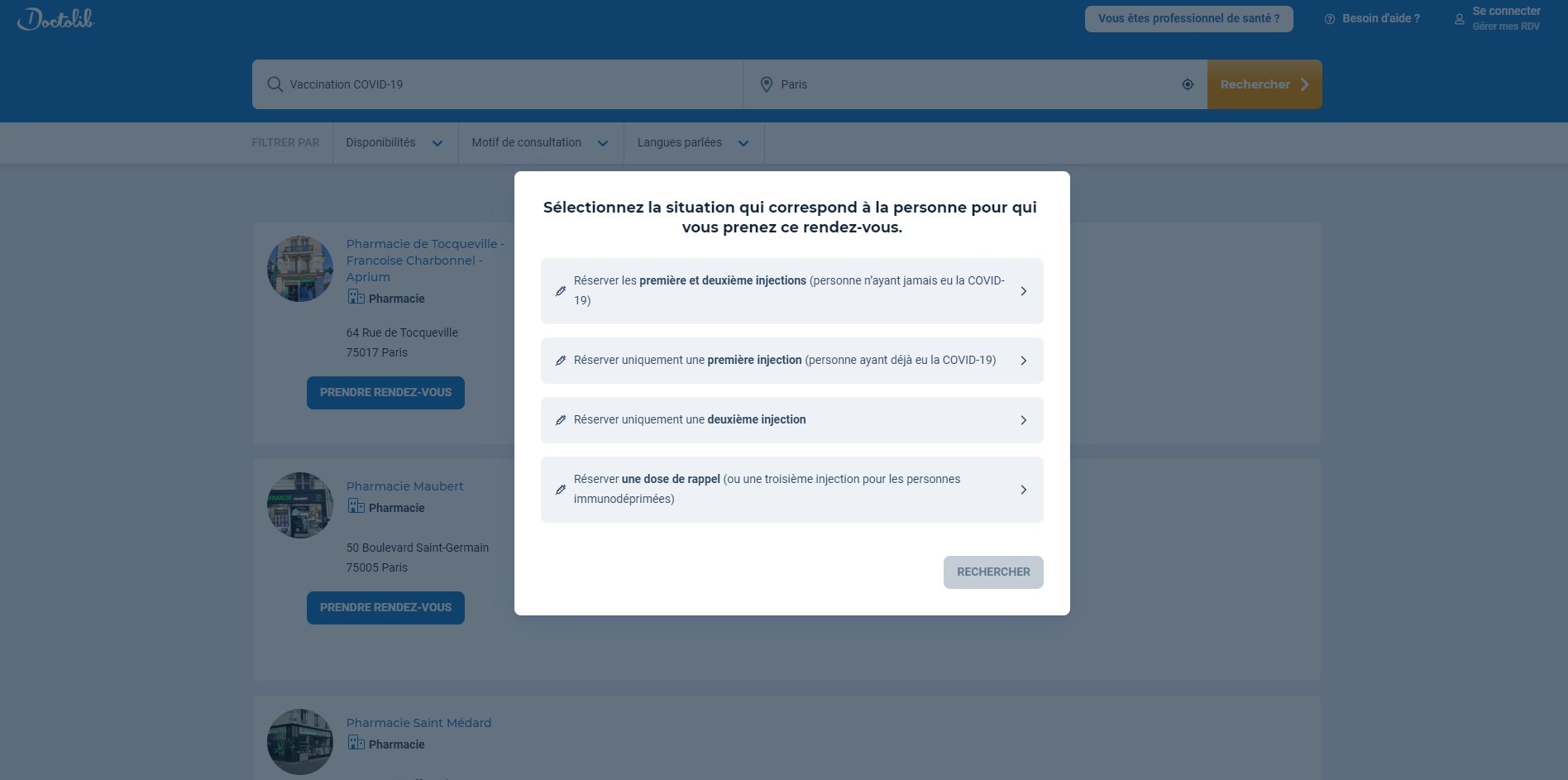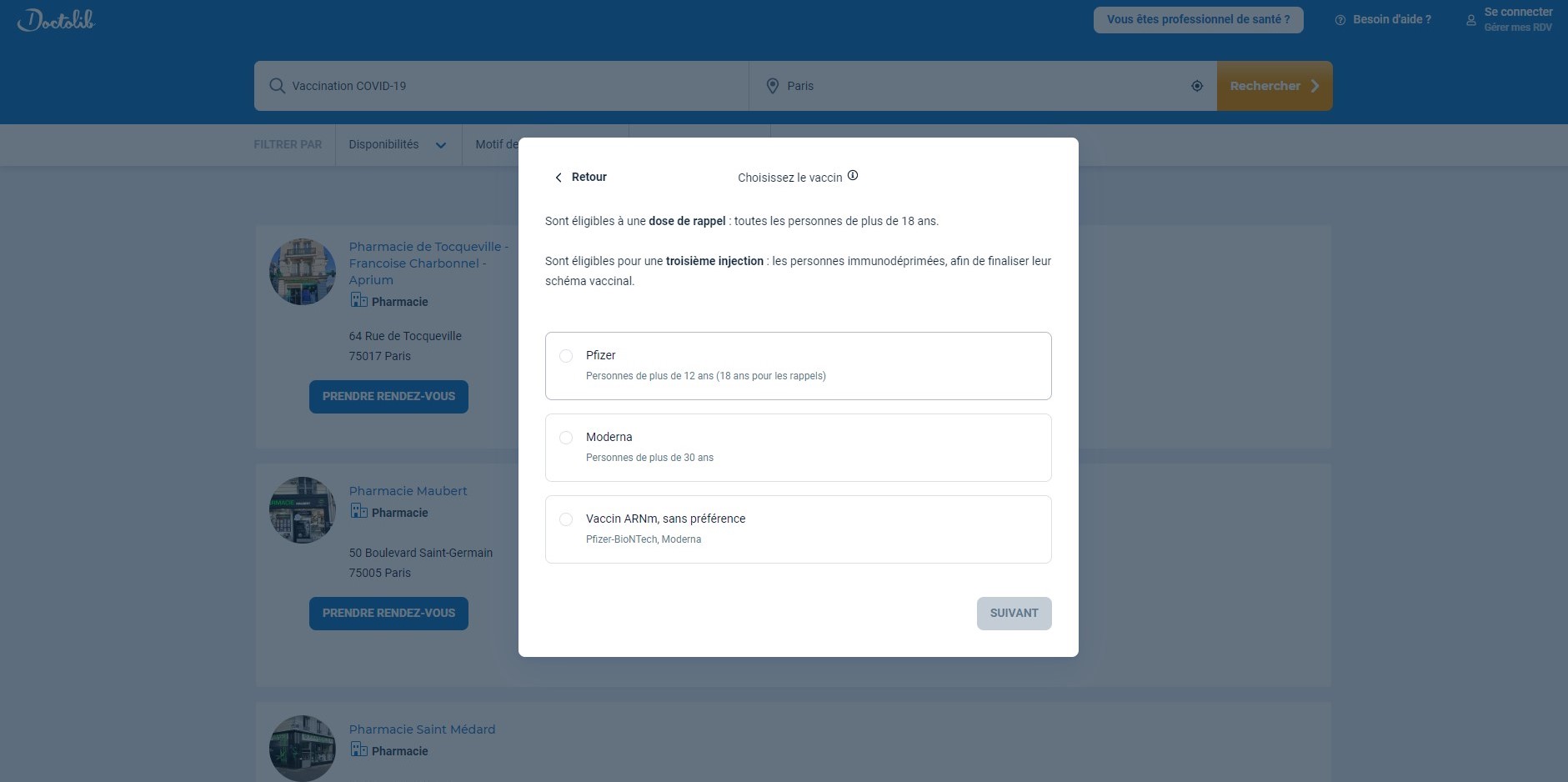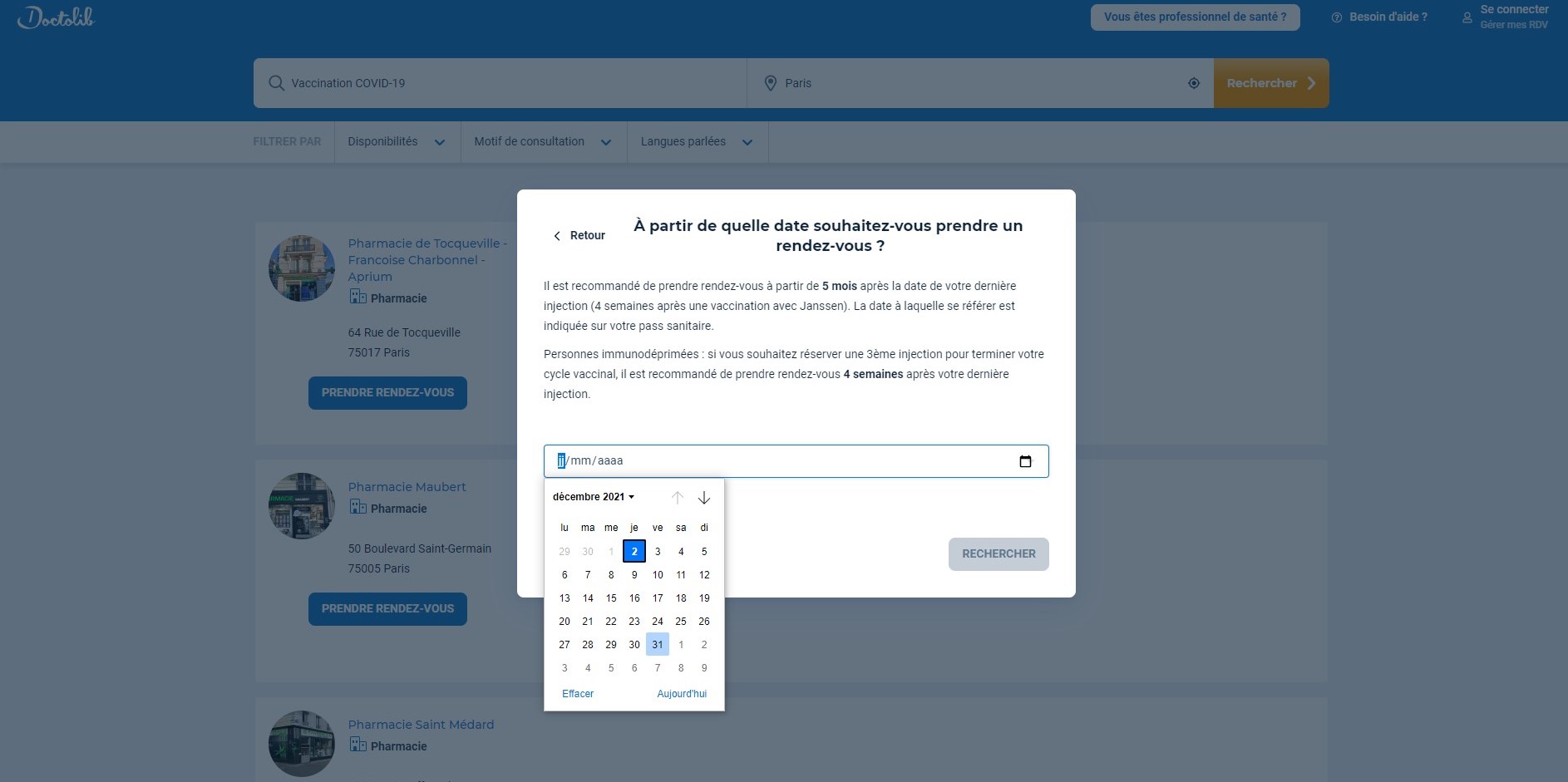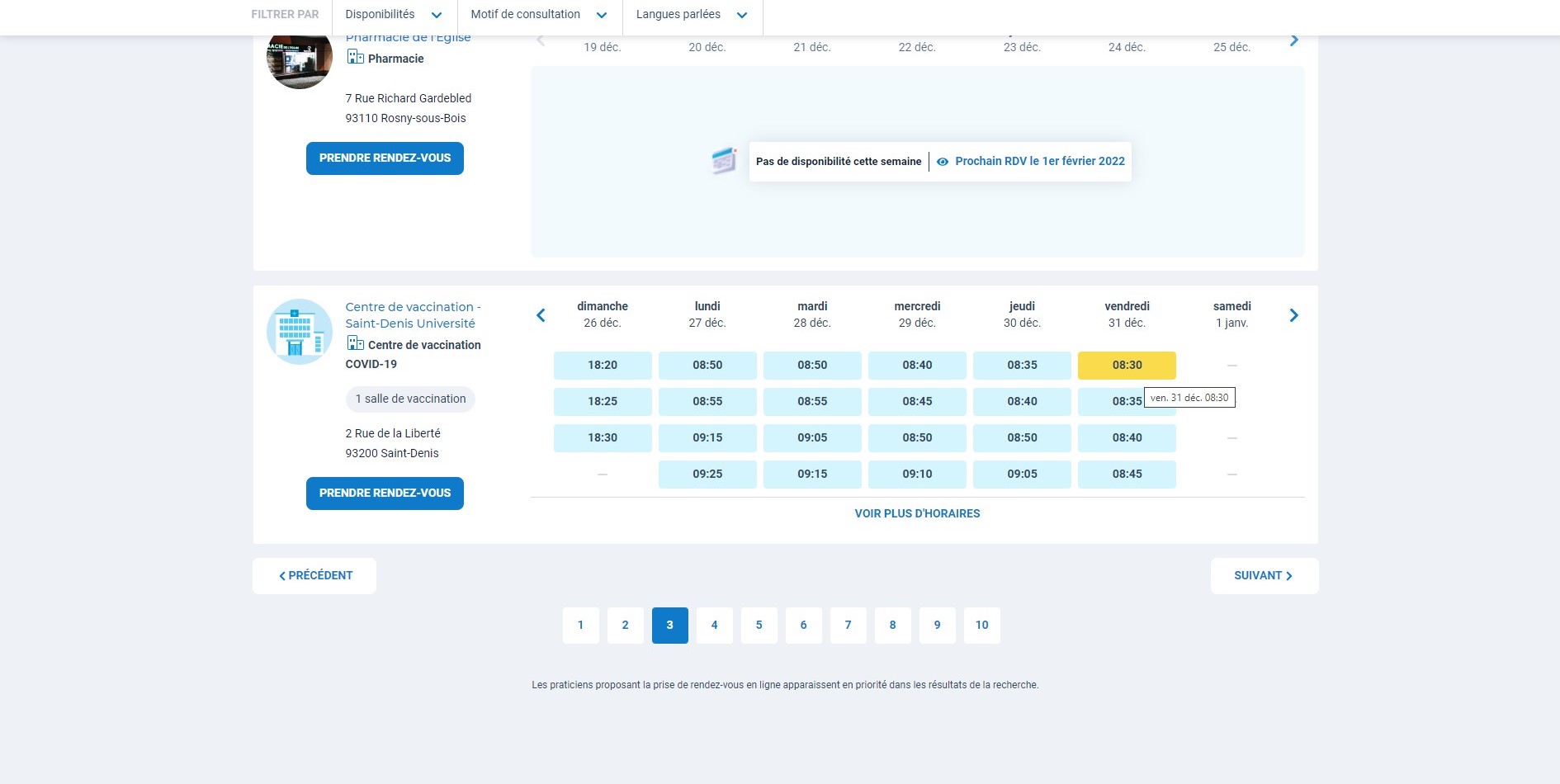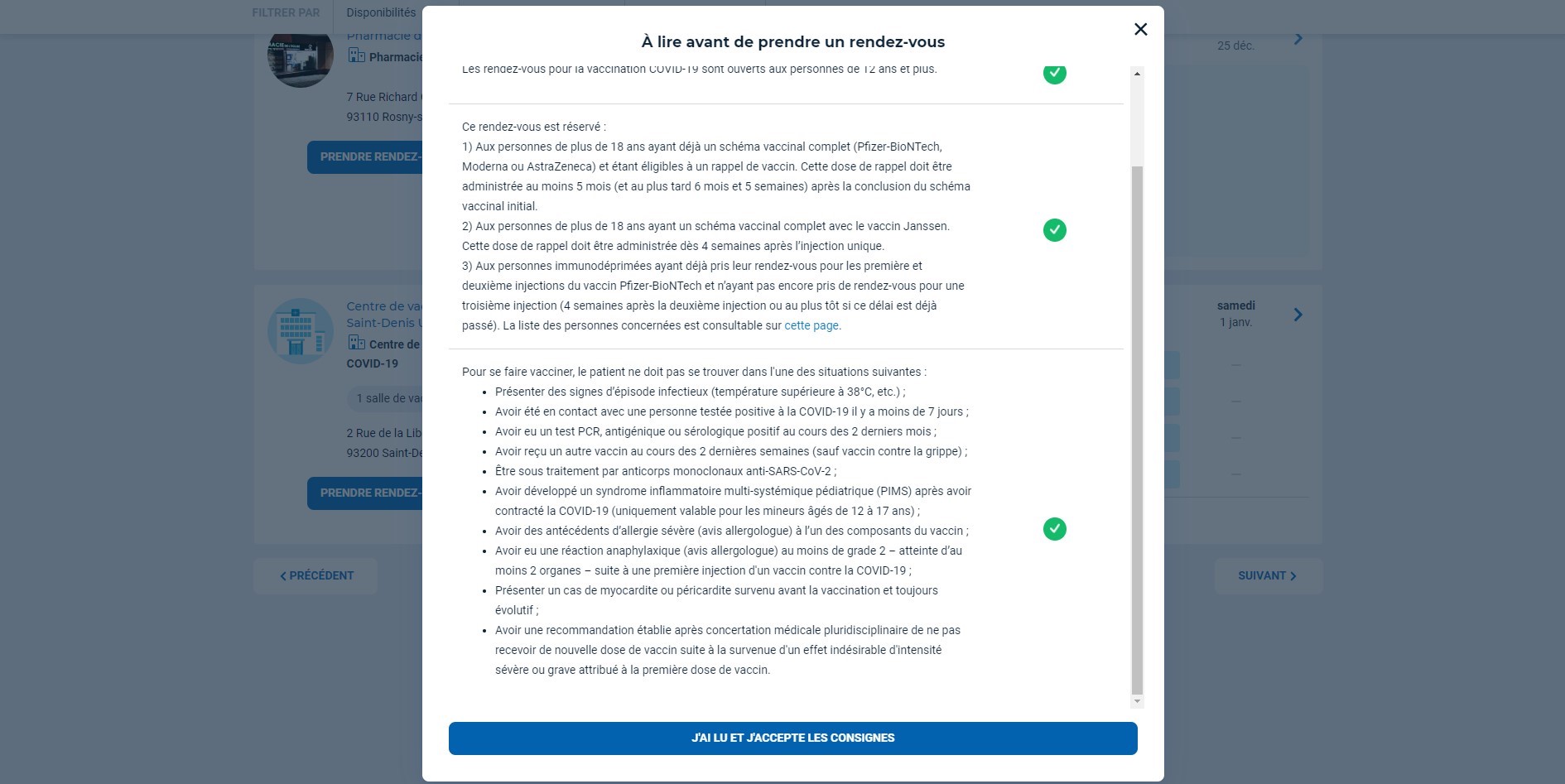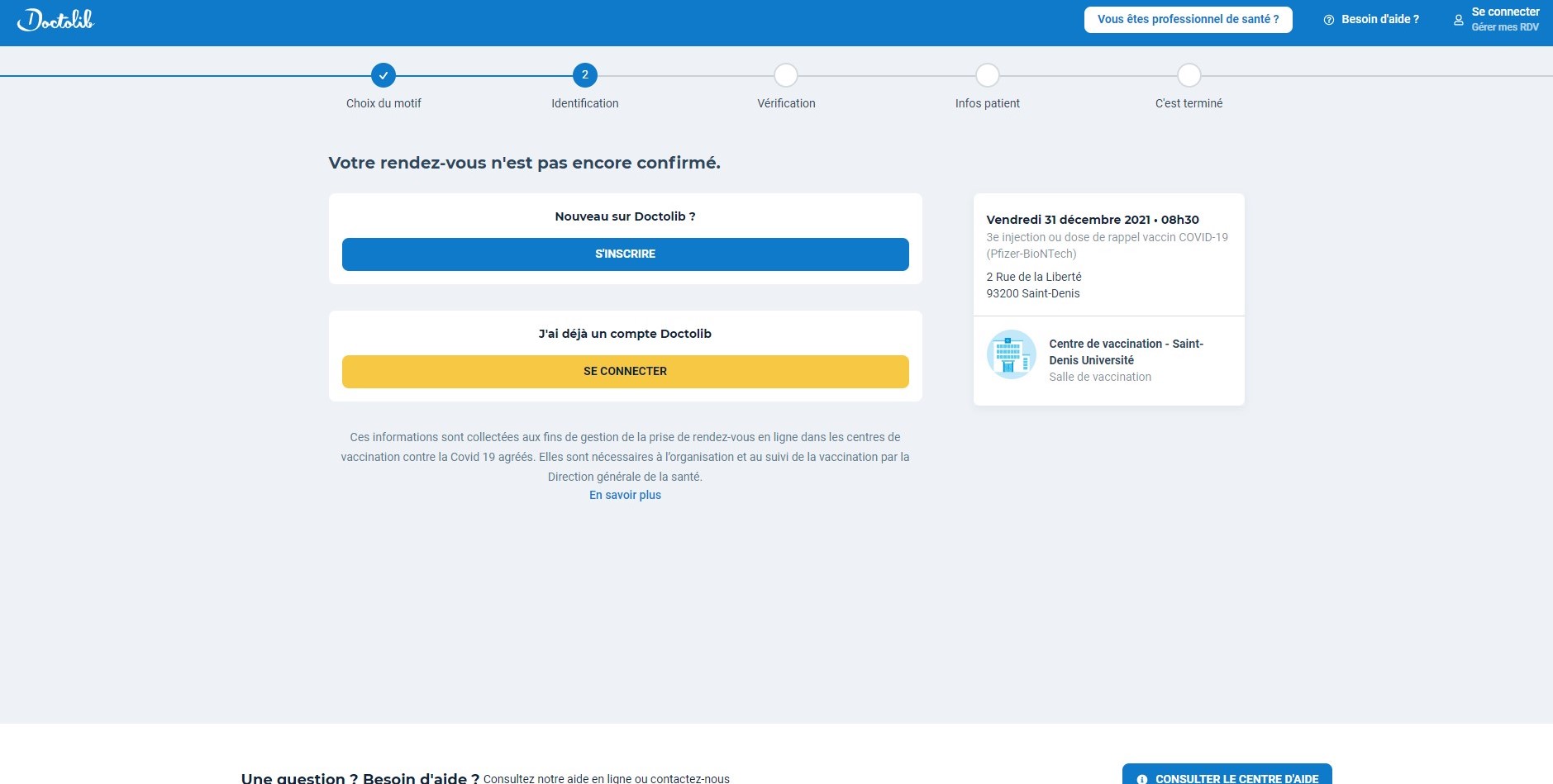Nearly three years after the tragic fire which devastated Notre-Dame Cathedral, the restorations are advancing safely and steadily. The Cathedral’s unfortunate closure has provided Parisians and visitors alike the opportunity to study, visit or rediscover some of the other unique and architecturally significant places of worship in Paris. You can view some of our favourites below.
There are a number of beautiful synagogues in Paris, however, the one on rue Pavée is especially unique. Designed by Hector Guimard, who designed the emblematic green metro entrances still standing today, the synagogue is an Art Nouveau jewel. Completed in 1914, it is hard to imagine both its true size and its beauty from the exterior, nor that it is made of concrete, however, its undulating façade, decorated in floral motives, the Star of David and Tables of Law, do hint to its splendour. Inside, the long and narrow building has an impressive structure iron structure, typical of the turn of the 20th century, as well as ornate wooden decorative features.
The centre of France’s Muslim community, this serene place of worship in the 5th arrondissement is also the oldest Mosque in Paris. Completed in 1926, the Grand Mosque was commissioned by the French State as a token of appreciation to the Muslim soldiers who fought for France in World War I. Moorish in style, architect Maurice Tranchant de Lunel was inspired by the el-Qaraouyyîn Mosque located in Fez, Morocco. The vast 7,500 square-metre site has a 33-metre-high minaret, a grand entrance door with stylised floral motifs and a large courtyard with Arab style gardens, home to an enchanting tea salon and restaurant from where you can contemplate the building’s architecture over a mint tea and North African pastry.
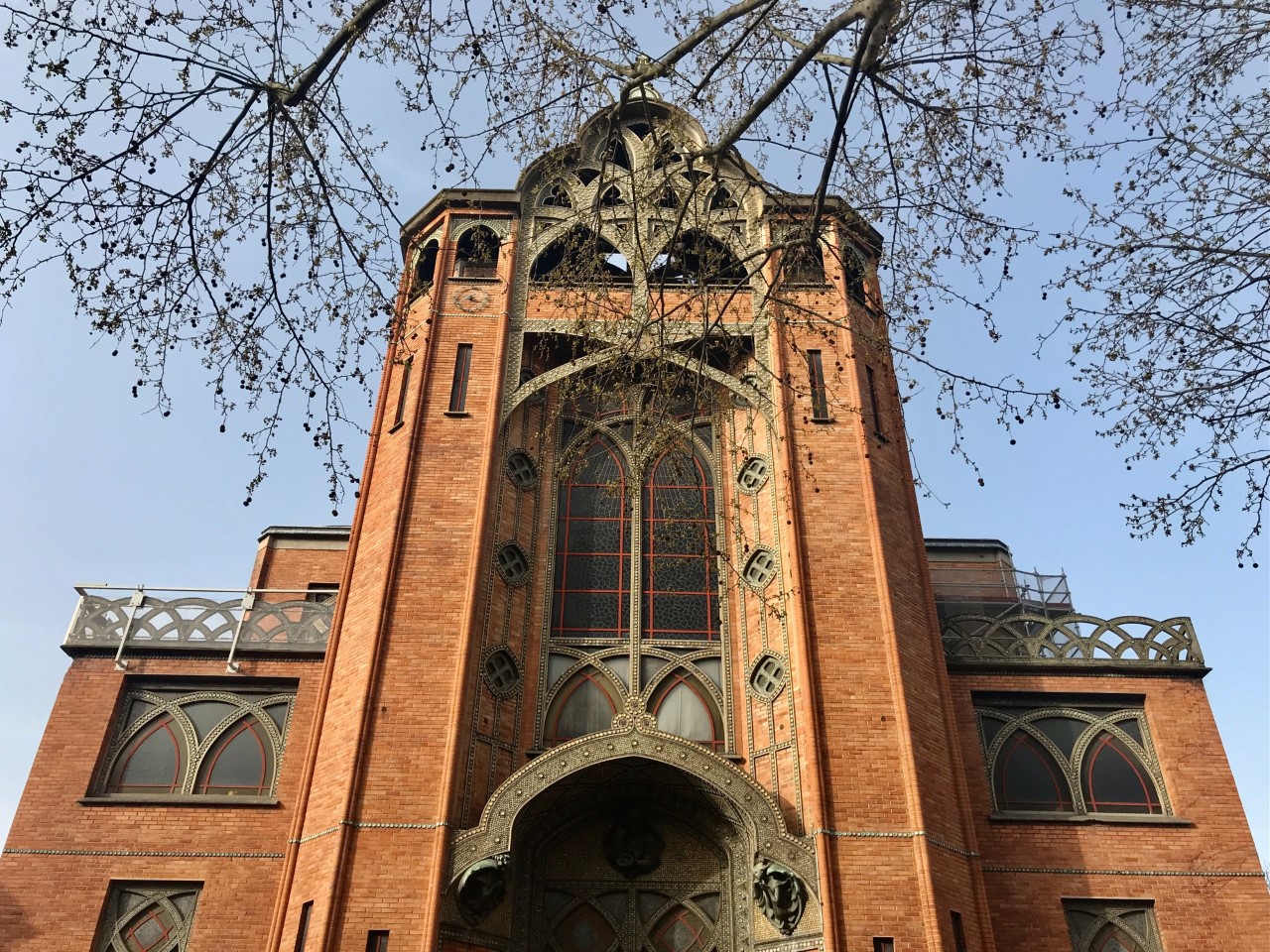
Saint-Jean de Montmartre
While the more famous Sacré-Coeur Basilica usually steals the limelight when it comes to churches in Montmartre, this église found on Place des Abbesses is perhaps more architecturally significant. The parish church was constructed from 1894 to 1904 and designed by architect Anatole de Baudot, a student of Viollet-le-Duc, who oversaw the 19th-century renovations on Notre-Dame and many other historic sites around France. Art Nouveau in style with Moorish influences, it instantly stands out due to its building materials: brick and reinforced concrete — the first church in the world to use this newly invented building technique. It also features lovely ceramic work by artist Alexandre Bigot, known for his impressive work on the iconic Art Nouveau building at 29 Avenue Rapp.
If you’re walking or boating along the Seine, an unusual, glimmering sight appears on the Left Bank a few blocks from the Eiffel Tower; the Cathedral de la Sainte-Trinité, one of Paris’s two Russian Orthodox cathedrals. Opened in 2016, the complex on the Quai Branly comprises of the Holy Trinity Cathedral and the Russian Orthodox Spiritual and Cultural Center. Designed by renowned French architect Jean-Michel Wilmotte, the church is modelled after the Dormition Cathedral in Moscow and features five gilded onion domes. The modern building starkly contrasts the other Russian Orthodox cathedral in Paris, the mid-19th century Cathédrale Saint Alexandre Nevsky, located in the 8th district and also worth visiting.
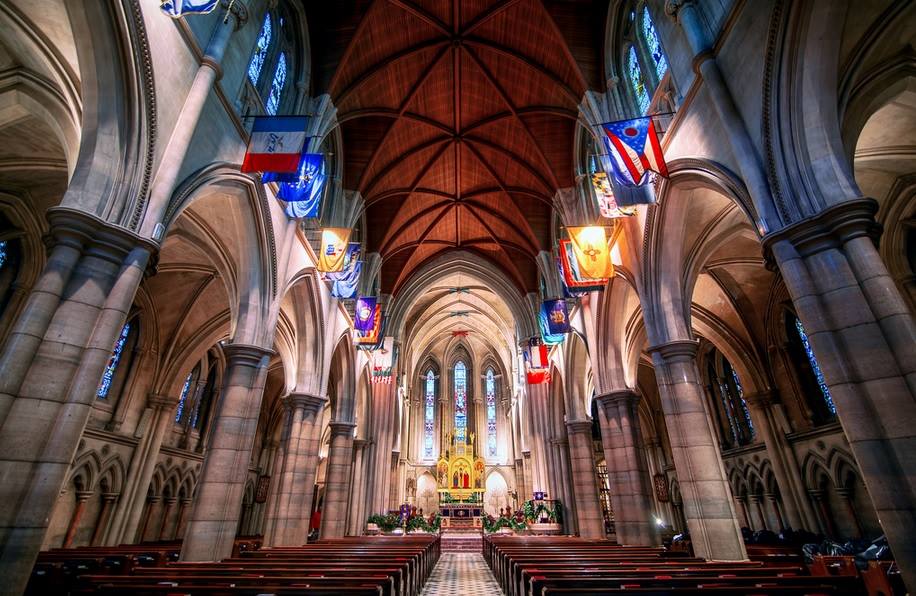
Photo: American Cathedral in Paris
Another place of worship dedicated to the Holy Trinity, this beautiful American Episcopal Church has been serving the Anglophone community of Paris since 1886. The Neo-Gothic design of English architect George Edmund Street, with pointed arches and stained-glass windows, is reminiscent of Notre-Dame. The 20th century saw two additions; the 85-metre tower, which is one of the tallest in Paris, and the peaceful cloisters, a memorial to the American soldiers and civilians killed in France during WWI.
Perhaps the most original of the list, this wooden structure, nestled within the Bois de Vincennes in eastern Paris, was originally built as the Pavilion of Cameroon for the 1931 Colonial Exhibition. While most of the other pavilions of the exhibition were torn down, in 1977 this building was restored and converted into a Buddhist temple. Today it houses the French headquarters of the International Buddhist Institute and inside the pagoda is the largest Buddha statue in Europe. Situated nearby is the Kagyu-Dzong Buddhist Centre, a Tibetan style temple built in 1985 and more representative of traditional Buddhist architecture.
Another fascinating church in the 14th arrondissement, from the outside it doesn’t look particularly interesting, however, pushing open its doors you’ll discover a stunning example of Belle Epoque architectural prowess. The church was designed as a place of worship for the large influx of labourers who’d come to the city to build the 1900 Paris Exposition, many of whom were housed in what was then a principally working-class district. The nave features an soaring iron structure, resemblant of the Eiffel Tower, and made of recycled materials from the Palais de l’Industrie, a demolished building from a previous World’s Fair. The walls were also built of repurposed material, stone from the former Grenelle slaughterhouse. These elements pay homage to the typical profile of the church’s working-class parishioners.
Originally a Lutheran Church serving the German immigrants of northern Paris, Saint-Serge de Radonège is now a Russian Orthodox church and theological institute. Located in the Buttes-Chaumont district, the church is surrounded by greenery and the exterior boasts an ornate porch in coloured wood. The interior of the church was decorated by the Russian painter Dmitri Semionovitch Stelletsky in the Russian neo-Gothic style. The church has a number of outbuildings, including a library with a significant collection of Russian books.
